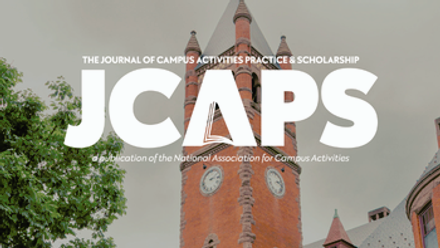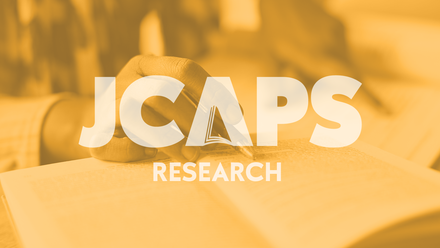Healing Effects of Social Connection & Community for College Students
Summarized: the Surgeon General's Advisory on the Healing Effects of Social Connection and Community for College Students
In May of this year, the US Surgeon General’s Advisory released a report addressing the issue of loneliness and isolation, including a lack of social connection that is taking place and impacting our entire country. The data and findings are spread across all age groups and demographics proving that social connectedness has become an issue of national attention that needs to be addressed. So much so that one finding found that lacking social connection can increase the risk for premature death as much as smoking up to 15 cigarettes a day.
While the report discusses a range of impacts that happen from social disconnection, one category that is relevant for this time of the year is the impact of loneliness and isolation that happens among young adults, particularly those that are about to go to college. It kind of makes sense, right? These students have moved to a new area, away from family and old friends, and they enter an unfamiliar space with new friendships to cultivate and new social connections to explore. For some students, they will easily attract and find their people, however others will have a harder time adjusting.
In this article, we will be taking a closer look at the Advisory report, mainly as it relates to college students. We will look into the data and trends we are seeing as it relates to young adults and the impacts that social connection has on their lives and the ones they interact with.
**To dive deeper into this topic and hear some of the findings in more detail, make sure to join the Webinar: "Connection on Campus: A closer look at the Surgeon General's Advisory on the Healing Effects of Social Connection and Community" on September 7 at 1:00 p.m. ET. Additionally, we will also have a second Blog: How to Enhance Social Connections on Campus, so make sure to look for that in the future.**
One of the most shocking things that people will see when reading the report is the data and trends that we are currently seeing in regards to social connection. What is also important to know is that the majority of this information was compiled even before the COVID-19 pandemic.
The 5 main pieces of data and trends that relate to college age students are:
- The rate of loneliness among young adults has increased every year between 1976 and 2019, and young adults (17-25) are almost twice as likely to report feeling lonely compared to those over 65.
- Recent surveys have found that approximately half of U.S. adults report experiencing loneliness, with some of the highest rates among young adults.
- The amount of time respondents engaged with friends socially in-person decreased from 30-hours/month in 2003 to 10-hours/month in 2020. This represents a decrease of 20 hours per month spent engaging with friends and this decline is starkest for young people ages 15 to 24.
- The amount of time spent in-person for young adult friends has reduced by nearly 70% over almost two decades, from roughly 150 minutes per day in 2003 to 40 minutes per day in 2020.
- Young adults who use social media for more than two hours a day are twice as likely to report increased perceptions of social isolation compared to those who use it for less than 30 minutes.
These findings within the report are just some of the data and trends that show how young adults feel more disconnected than ever before, but more importantly it also goes into the impacts of social connection as it relates to the health and well-being of students.
The report also mentions that “social connection is a significant predictor of longevity and better physical, cognitive, and mental health, while social isolation and loneliness are significant predictors of premature death and poor health.” The health impacts of social disconnection also range from a 29% increased risk of cardiovascular disease, to the lack of social connection being an independent risk factor for deaths from all causes. Additionally, social connection can improve various biomarkers of cardiovascular functioning, including blood pressure, cardiovascular reactivity, and oxidative stress.
Another aspect the report discussed in more detail, was the mental health that is greatly impacted by the level of social connection that someone has in their life.
When looking in more detail, it was found that “social connection also seems to protect against depression even in people with a higher probability of developing the condition.” Additionally, “social isolation is arguably the strongest and most reliable predictor of suicidal ideation, attempts, and lethal suicidal behavior among samples varying in age, nationality, and clinical severity.” While we know that there are many factors that can contribute to poor mental health, findings have concluded that social connection can overcome those factors and contribute to a more healthy mental state.
Other impacts that fall outside of the physical and mental impacts of social connection, include impacts to someone’s education and the economy. Within the report it was found that “school and family connectedness during adolescent years may predict subsequent positive outcomes in early adulthood, including a higher likelihood of graduating college and attaining a 4-year college degree.” In contrast, a lack of social connection has been shown to inhibit students progressing in higher education. Not only does social connection impact the immediate education for a student, but also the future of the student as they move forward in their career. Studies even show that socially connected communities generally experienced higher levels of economic prosperity, and “experienced greater resilience against unemployment.”
In today's world, social connection is crucial for the health and well-being of college students and those they interact with on a daily basis. When we are able to recognize and address loneliness and isolation, we are able to be better equipped to help students that are struggling with connection.
We look forward to having you join us for a discussion on the upcoming webinar as we look deeper into these topics and explore recommendations from the Surgeon General Advisory on how we can work together as a community to advance social connection on campus.


